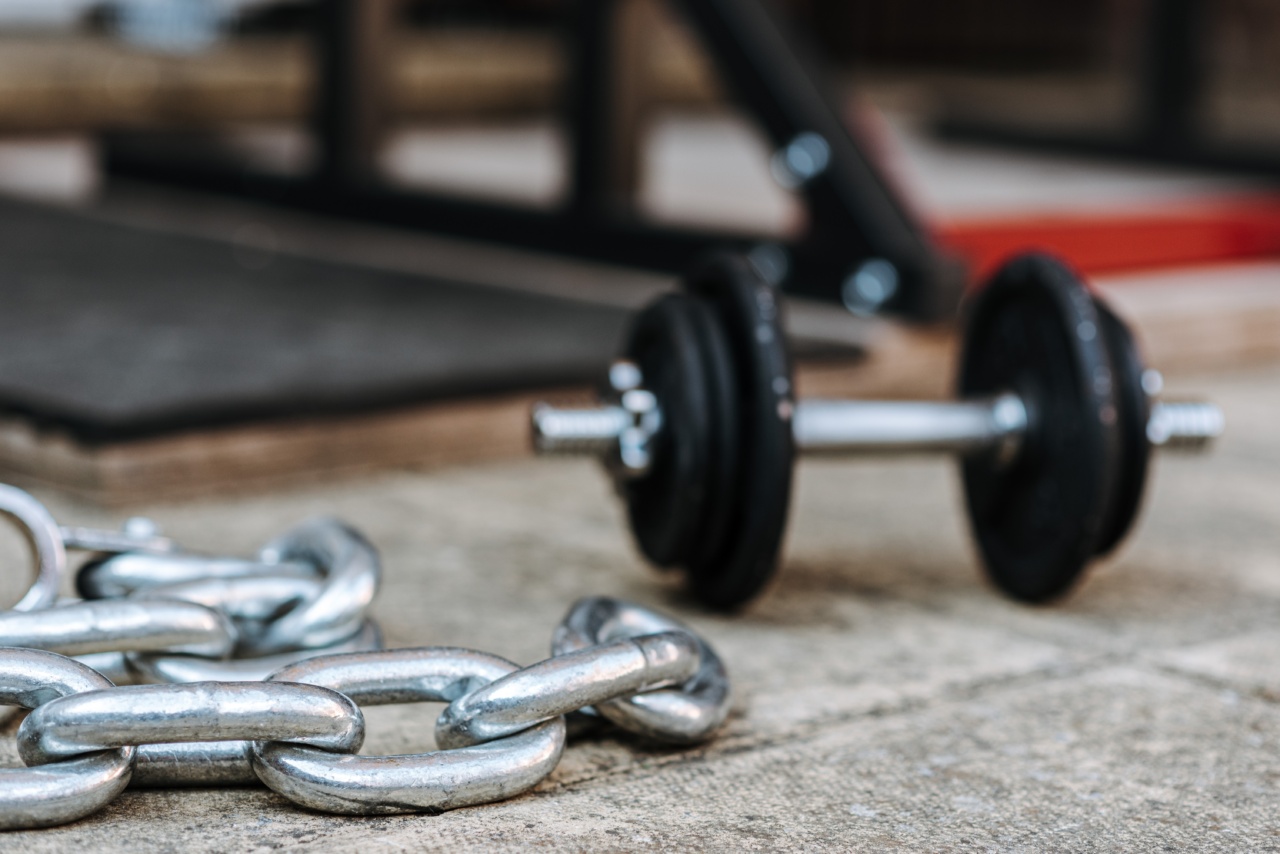Regular exercise is known to bring numerous health benefits, including weight loss, improved cardiovascular health, and increased energy levels. Many people also experience a decrease in appetite after engaging in physical activity.
This phenomenon has been extensively studied, and several factors contribute to the link between exercise and reduced appetite. In this article, we will explore the science behind this connection and shed light on how exercise can help control hunger.
1. Increased Levels of Peptide YY
Peptide YY (PYY) is a hormone produced in the gastrointestinal tract that plays a role in regulating appetite. It is released after meals and helps to suppress hunger signals.
Research has shown that exercise can increase the production and release of PYY, leading to a reduction in appetite. A study published in The Journal of Clinical Endocrinology & Metabolism found that individuals who engaged in high-intensity exercise had higher PYY levels compared to those who were sedentary.
2. Changes in Gut Hormones
Beyond PYY, exercise also influences various other gut hormones that impact appetite regulation. Ghrelin, often referred to as the “hunger hormone,” is responsible for stimulating appetite.
Exercise has been shown to decrease ghrelin levels, thereby decreasing hunger sensations. On the other hand, exercise has been found to increase levels of hormones like glucagon-like peptide 1 (GLP-1) and cholecystokinin (CCK), both of which promote feelings of fullness.
3. Improved Insulin Sensitivity
Regular physical activity enhances insulin sensitivity, allowing the body to utilize insulin more effectively. This improved insulin sensitivity can help stabilize blood sugar levels and prevent rapid spikes and drops in glucose.
When blood sugar is managed efficiently, it can lead to reduced cravings and a more balanced appetite. Studies have shown that exercise can enhance insulin sensitivity for up to 48 hours post-workout, highlighting the long-lasting effects on appetite regulation.
4. Impact on Brain Chemistry
Exercise not only has physical effects but also influences brain chemistry in ways that can help control appetite. Physical activity stimulates the release of endorphins, commonly known as “feel-good” hormones.
These endorphins can positively impact mood and reduce stress levels, which often contribute to overeating or emotional eating. By improving emotional well-being, exercise indirectly influences appetite and food choices.
5. Reduction in Leptin Resistance
Leptin, also known as the “satiety hormone,” is produced by fat cells and plays a crucial role in regulating hunger and energy balance.
However, individuals who are overweight or obese often develop resistance to leptin, leading to increased appetite and reduced satiety cues. Regular exercise has been found to reduce leptin resistance, allowing the hormone to function optimally and control appetite more effectively.
6. Increased Energy Expenditure
Exercise expends energy and helps create an energy deficit in the body. When we engage in physical activity, our body burns calories to fuel the movement.
This energy expenditure can create a temporary suppression of appetite as the body adjusts to the deficit. Additionally, exercise can increase metabolic rate, leading to more calorie burning even at rest. This, in turn, can contribute to sustained weight loss and appetite reduction over time.
7. Influence on Food Preferences
Regular physical activity has been shown to influence food preferences and choices. Studies have found that individuals who exercise regularly tend to gravitate towards healthier food options.
This could be due to a heightened awareness of nutrition and a desire to fuel the body with nutrient-rich foods. Choosing healthier options can lead to improved satiety and better appetite control in the long run.
8. Psychological Factors
Engaging in exercise can have psychological implications that positively impact appetite. Physical activity can boost self-esteem, improve body image, and enhance overall mental well-being.
When individuals feel more confident and content in their bodies, they may be less prone to engage in emotional or binge eating. Building a healthy relationship with food and body image through exercise can lead to better appetite regulation and healthier eating patterns.
9. Timing of Exercise and Appetite
The timing of exercise can also influence appetite. Some studies suggest that exercising before meals can suppress hunger and reduce calorie intake throughout the day.
This might be due to the temporary appetite suppression experienced immediately after physical activity. Alternatively, post-exercise appetite can vary among individuals. While some may experience reduced hunger, others might find themselves feeling hungrier and may need to consciously regulate their food intake to align with their goals.
10. The Role of Endocannabinoids
Endocannabinoids are lipid molecules that bind to cannabinoid receptors in the brain and influence various physiological processes, including appetite regulation.
Exercise has been found to impact the endocannabinoid system, leading to potential appetite suppression. A study published in Psychoneuroendocrinology showed that moderate-intensity exercise can lower the levels of endocannabinoids associated with increased appetite, demonstrating the connection between exercise and endocannabinoid regulation.
In Conclusion
Exercise offers numerous benefits beyond weight loss and improved fitness. The link between exercise and reduced appetite is a complex interplay of hormonal, physiological, and psychological factors.
By increasing hormones that suppress hunger, improving insulin sensitivity, affecting brain chemistry, and influencing food preferences, exercise can effectively regulate appetite. Incorporating regular physical activity into one’s routine can help control cravings, manage portion sizes, and support overall well-being.




























